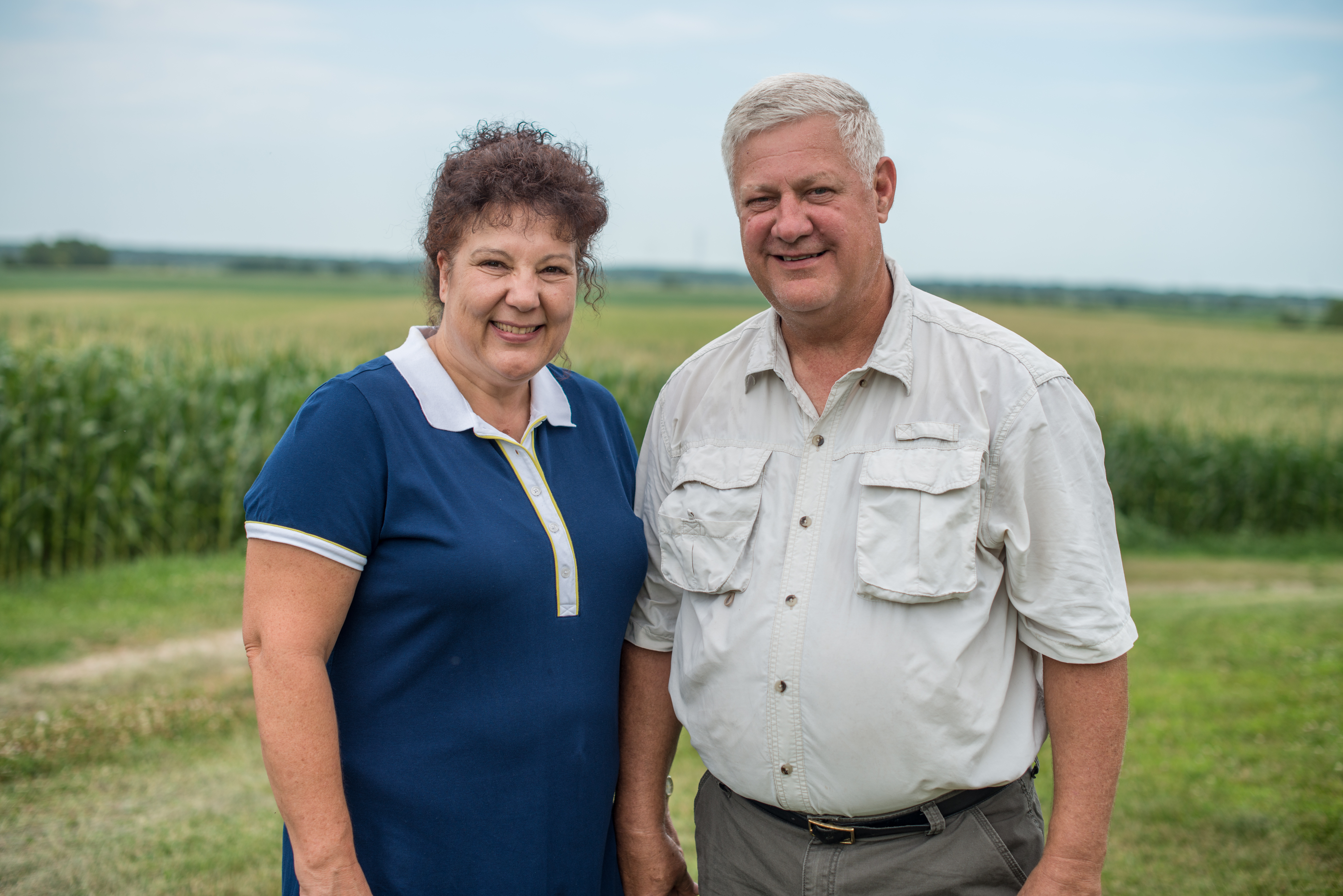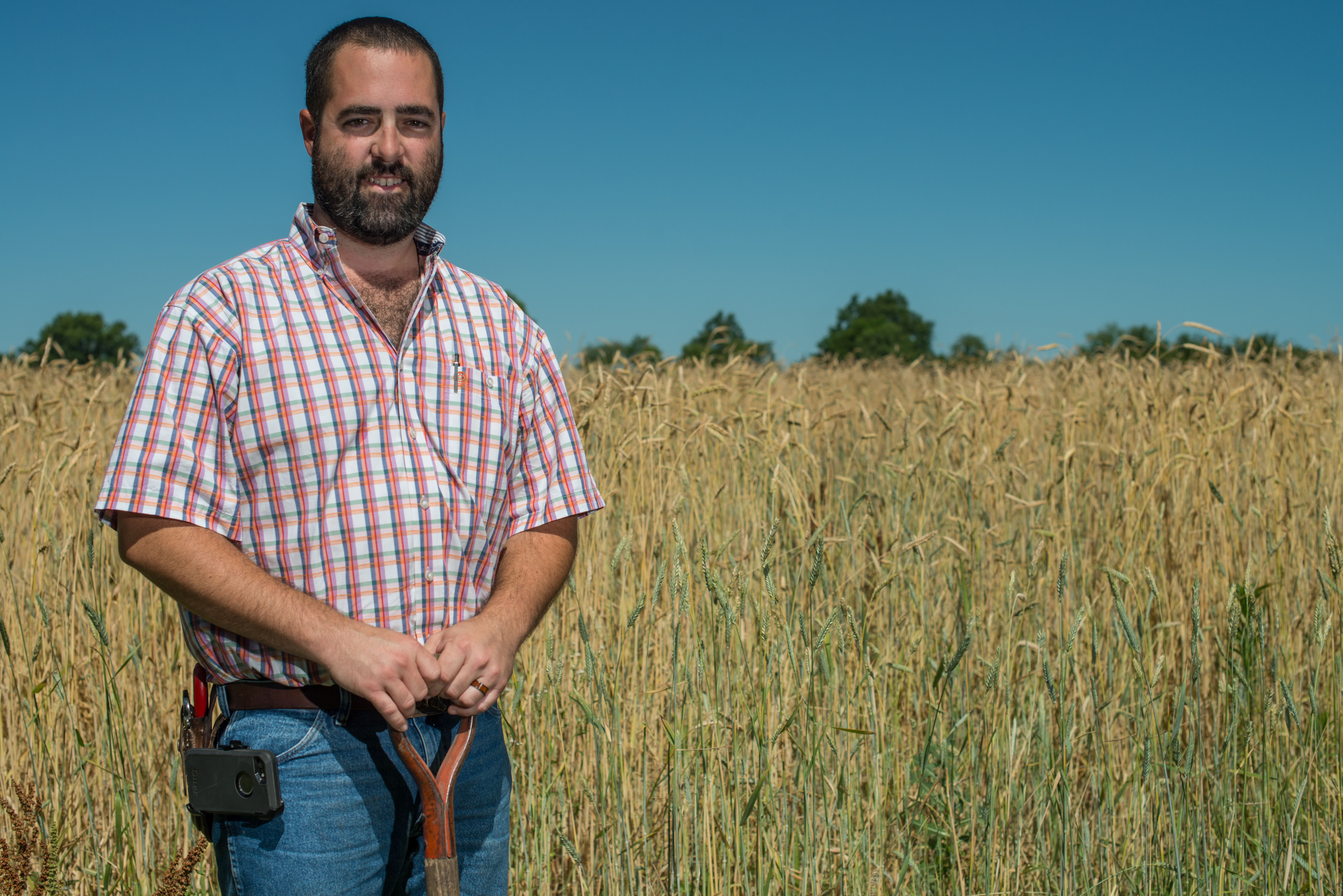Missouri Farms Join Soil Health Partnership, Embracing Next Frontier In Agriculture
National Data-Collection Project Aims To Link Environmental, Entrepreneurial Benefits Of Soil Health
(ST. LOUIS, Mo.)–Six Missouri farms have joined the Soil Health Partnership, a move that could hasten the adoption of agricultural practices linked to optimizing crop production and sustainability alike in the Show-Me State.
Often called the next frontier in agriculture, research shows the benefits of nurturing soil health include improved crop yield, enhanced water quality, increased drought resilience, better flood resistance, and decreased greenhouse gas emissions. Key practices to improve soil health include reduced tillage, the use of cover crops in winter, and advanced nutrient management.
“The missing link has been data that show these practices can provide a significant economic benefit on real, working farms, in addition to positive environmental outcomes,”said Darrick Steen, director of environmental programs for the Missouri Corn Merchandising Council and Missouri Soybean Merchandising Council. Both organizations support the program and helped bring it to the state. “The SHP is answering key questions Missouri growers ask us, using sound scientific trials that growers can depend on, and right in their own fields.”
The newly enrolled farmers mark the official expansion of the partnership into Missouri, joining more than 100 others enrolled in the program in nine other states. They are:
- Neal and Kathy Bredehoeft/Alma, MO
- Renee and Richard Fordyce/Bethany, MO
- Tim and Lennie Gottman/Monroe City, MO
- Brent and Charlotte Hoerr/Palmyra, MO
- Brian D. Martin/Centralia, MO
- Joshlin Yoder/Leonard, MO
One of the farmers, Richard Fordyce, is former director of the Missouri Department of Agriculture. He championed initiatives such as the Agricultural Stewardship Assurance Program, a voluntary certification program.
The Missouri farmers will measure results of cover crop strip trials, in addition to other management strategies to improve nutrient use efficiency and water quality, and to reduce erosion. With the help of a trained field manager, SHP will measure improvements in soil health and farm outcomes over a period of years on the strips that have cover crops, compared to those that don’t.
An initiative of the National Corn Growers Association, the Soil Health Partnership is a data-driven program working to quantify the benefits of practices that support soil health from an economic as well as environmental standpoint.
***
About the Soil Health Partnership
The Soil Health Partnership is a farmer-led initiative that fosters transformation in agriculture through improved soil health, benefiting both farmer profitability and the environment. With more than 100 working farms enrolled in more than 10 states, the SHP tests, measures and advances progressive farm management practices that will enhance sustainability and farm economics for generations to come. SHP brings together diverse partners to work towards common goals. At least a ten-year scientific program administered by the National Corn Growers Association, the SHP’s vision is driven by initial and continuing funding and guidance from NCGA, Monsanto, the Walton Family Foundation, the Midwest Row Crop Collaborative, General Mills and USDA, with technical support from The Nature Conservancy and the Environmental Defense Fund. For more, visit www.soilhealthpartnership.org.
About the Missouri Corn Merchandising Council
Formed in 1984, the Missouri Corn Merchandising Council is an organization of corn growers dedicated to developing and expanding corn markets, educating growers and customers and exploring new research opportunities. Learn more at www.mocorn.org.
About the Missouri Soybean Merchandising Council
The Missouri Soybean Merchandising Council is a farmer-run organization focused on growing opportunities for growers by investing Missouri’s soybean check off dollars in research and education. To learn more, visit Missouri Soybeans online at www.mosoy.org.
Downloadable media assets for this article:
Right-click the link and choose "Save as." Captions for the photos are provided.
Photo Downloads

Photo Caption: Charlotte and Brent Hoerr, newly enrolled farmers in the Soil Health Partnership, on their farm near Palmyra, Mo.
Photo Credit: Soil Health Partnership

Photo Caption: Brian D. Martin, a newly enrolled farmer in the Soil Health Partnership, stands in a field of cereal rye, a cover crop he grows on his farm in Centralia, Mo.
Photo Credit: Soil Health Partnership
